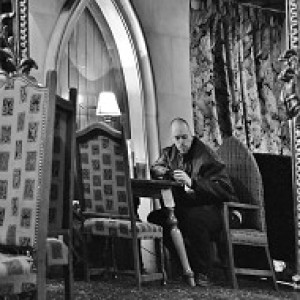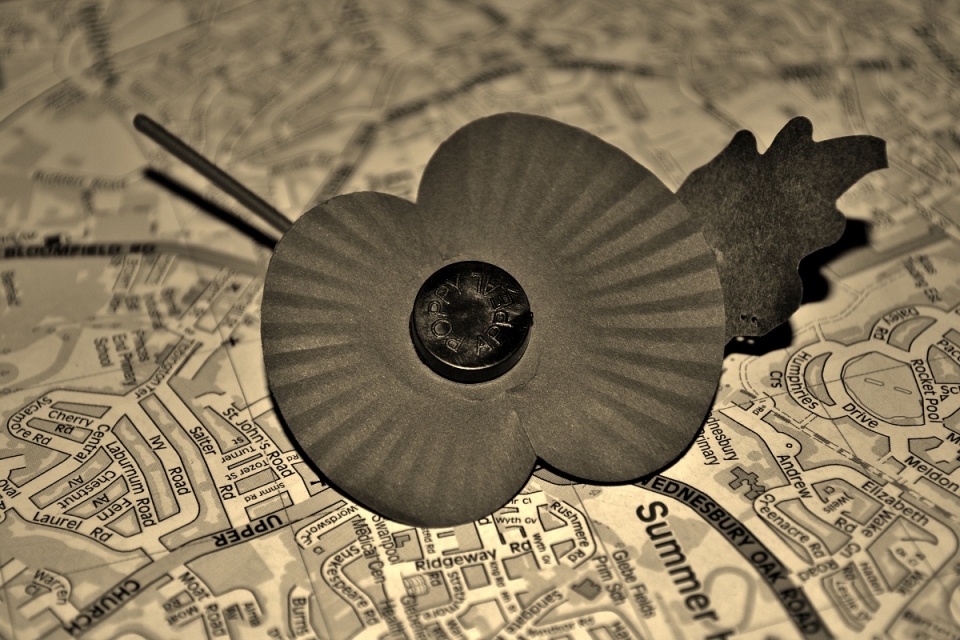Home Front
This time last year, I talked a little about how, in commemorating servicemen who've given their lives in wartime, we're sometimes prone to overlooking those who never even got a choice in the matter. In both world wars, the economy and industrial infrastructure of the Black Country and Birmingham were turned over almost entirely to the war effort, and both became immediate targets for destruction as a result. My grandmother's stories of working munitions manufacture in Hockley first got me interested in the forgotten - perhaps even ignored - tales of those who risked their lives doing nothing more adventurous than going to work. And make no mistake; they did risk their lives. Aside from the efforts of the Luftwaffe, shells under construction often detonated on the production line, maiming, mutilating and killing their assemblers, who were mostly women drafted to what was, in most cases, their very first job. One woman recalled going to work in a plant in Darlaston handling phosphorus for RAF incendiaries; the heels of their shoes on the factory floor were prone to creating sparks, and girls frequently caught fire as a result. As an early concession to health & safety, a bathtub was kept nearby to plunge burning workers into.
But wartime civilian deaths in the Black Country had already become a reality as early as the First World War. Having suffered a mass exodus of miners volunteering for Kitchener's Army, and most factories turning to munitions production, modern warfare finally became a tangible reality for the people of Tipton on Monday, 31st January 1916. The night the Zeppelins came.
Wilfred Mansell was three years old at the time, and the bombing became the first clear memory of his life. He had a wooden railway engine toy, a big one, that his family had made and painted for him for Christmas, and he was playing with it when the commotion began. There was a roar in the sky as the airships came over, and a sudden blast on Union Street as a bomb fell. The windows shattered, and Wilfred dropped his railway engine among the glass. Outside, he could see his mother; she was returning from his grandmother's house on Waterloo Street, and as she passed under a hanging lamp on the corner, it dropped onto her. There was panic. Down the road, Wilfred's neighbour Edith Priest could see a house missing one side, and wrecked furniture protruding from the rubble. Her nephews were crying; they were cut and bruised, as the first blast had blown them both clean out of bed. Meanwhile, a man coming out of the Beehive across the bridge stopped to help Wilfred's mother, and brought her back home. They were both shaking. The man said that it was the gas works; they were after the gas works.
Two Zeppelins raided the Black Country that night. The L-21, commanded by Kapitanleutnant Max Dietrich, passed over Tipton just after eight o'clock in the evening. L-21 was one of the newest and most advanced airships at the disposal of the German Imperial Navy, but it had been thrown off course by poor weather conditions. Dietrich had mistaken Derby for Manchester, and on seeing the lights and canals of Tipton, had presumed he was over Liverpool docks. The Zeppelin's bomber, Leutnant zur See von Nathusius, unloaded six bombs on Union Street, Waterloo Street and Bloomfield Road. Thirteen were killed.
Becky Underhill was five years old, and her older sister was engaged to Leonard Parkes, a local boy who'd volunteered for the army. Leonard was home on leave, and hearing the bombs fall, immediately recognised the sound and perceived the danger they were all in. Becky watched as Leonard left the house, and ran along Oldbury Road amid chaos and explosions, extinguishing the gas lamps to shroud the street in darkness and deny the airships a target. It seemed he couldn't possibly survive, but somehow, from the confusion and cold gloom, Leonard emerged and returned safely to the house, where the sisters were in tears. Becky remembered that moment for the rest of her life, until she passed away in October 2010.
Leonard Parkes returned to the Western Front a few days later, and was killed within two weeks.
- 0
- 0
- Nikon D3100
- 1/50
- f/5.6
- 55mm
- 280


Comments
Sign in or get an account to comment.


